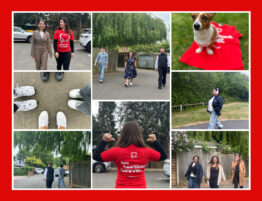
Someone recently passed on these words of wisdom to us: ‘Forget the mistake, remember the lesson’.
It’s a good message but we also think that when it comes to the kind of errors that can be made in construction, there’s something more to be said and done.
The first thing to acknowledge is that mistakes can be made at any phase of a construction project. Some of these may be minor but there are clearly others which can have serious consequences, affecting costs, schedules and, of course, the health and safety of workers. When the stakes are this high, it’s important that mistakes lead to lessons being learnt, but it’s even more important that they are avoided in the first place.
With that in mind, here’s our short guide to avoiding some of the common pitfalls in construction; in other words what NOT to do:
1. Making inaccurate estimates
Using accurate estimation methods may require a little more time and effort upfront but it’s always better to do this than get estimates for costs, time or materials wrong. The consequences of these kind of mistakes inevitably leads to increased expenses and lengthier project times.
2. Skimping on safety
While huge advancements around health and safety in construction have been made, the combination of working at height, heavy objects, hazardous substances and working with machinery means there’s still ample opportunity for danger. Accidents are costly in terms of both time and money so neglecting safety measures is never worth the risk.
3. Bad communication
Regular communication with the client throughout every stage of a construction project is paramount for ensuring its success. Failing to do this risks the project developing in ways that do not match the client’s expectation, needs or standards, leading to unplanned adjustments at a later date. Keep in touch at all times!
Equally, there must be regular communication between your project’s internal teams – managers, supervisors, site operative and office staff – especially when it comes to any changes that may occur. Poor communication runs the risk of people using out-of-date plans, schedules, policies or procedures in their work.
4. Unreliable staff
If workers fail to turn up when they’re meant to and/ or fail to work productively when they are on site, that will soon impact on any project’s ability to succeed. At the individual site level, project costs will rise and schedules will get longer (impacting on profitability) but at the company level there are further implications around reputation and client retention. During any hiring process, look for evidence of reliability.
5. The wrong materials
Choosing materials that are wrong or ill-suited will make any job more challenging. There could be timing issues if things have to be returned or complications of the ‘making a square peg fit into a round’ whole kind. Make sure that whoever is responsible for purchasing is knowledgeable about the materials you use, is aware of how purchasing fits with your environmental/ sustainability policies, and feels confident about making the right choices.
6. Allowing the project scope to creep up
While it’s common for construction projects to adjust a little as they progress, it’s a big mistake to allow one gradually increase in scope so that it eventually becomes way more demanding than initially thought. When this happens, the planning is taking place during the construction phase and this can lead to all kinds of problems. Critical elements might be overlooked, estimates can come up short and budgets and schedules could both overrun.
7. Losing track of ongoing costs
When a company fails to stay aware of the ongoing costs of a project and its cash in hand, a sudden lack of funds can occur and this will inevitable cause delays or totally stop a construction project in its tracks. Make sure your project budget has contingencies to deal with any potential risks that might interrupt cash flow and always keep an eye on the accounts.
8. Missing the signs of trouble
While not everything can be predicted, there are many potential failure points that give off clear warning signals before they happen and therefore can be avoided. Information is key so make sure to carry out regular site inspections so as to anticipate the problem areas like safety issues or changes in site terrain and conditions. Also be sure to keep abreast of anything else that could impact on your project – for instance, following industry news to prepare for issues like labour shortages, or paying attention to the weather forecast to plan and prevent issues caused by adverse weather patterns.
Plan and avoid
These and other types of mistakes can occur in any construction project and whether that’s an extension to a family home or a high-volume new-build residential site, the consequences can be serious.
Knowing where the possible pitfalls lie makes it much easier to avoid them. Much of what this comes down to is ensuring you plan smartly and effectively, take time to develop accurate estimates, employ great teams and promote an ethos of consistent communication between all parties.
Perhaps we should change those wise words we mentioned earlier to this:
Forget the mistake, remember the lesson, avoid the mistake for evermore!
23.02.2021
Feature image: Gearstd/Shutterstock.com








